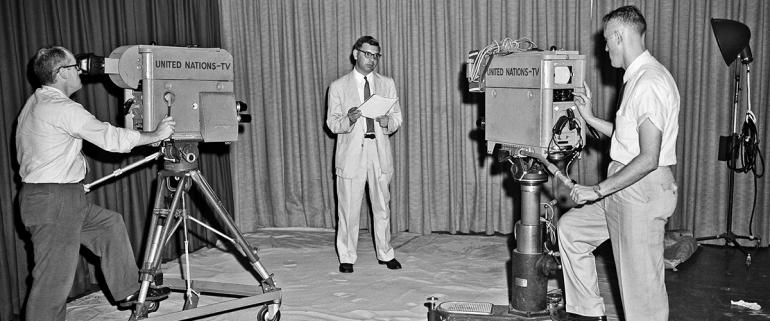World Day for Audiovisual Heritage

Today is World Day for Audiovisual Heritage.
Audiovisual documents, such as films, radio and television programs, are our common heritage and contain the primary records of the history of the 20th and 21st centuries.
Unfortunately, that heritage is now endangered, because sound recordings and moving images can be deliberately destroyed or irretrievably lost as a result of neglect, decay, and technological obsolescence.
Through initiatives such as the World Day for Audiovisual Heritage and the Memory of the World Programme, the work of preservation professionals are encouraged, in order to manage the range of technical, political, social, financial, and other factors that threaten the safeguarding of our audiovisual heritage.
The General Conference of UNESCO approved the commemoration of a World Day for Audiovisual Heritage in 2005 as a mechanism to raise general awareness of the need to preserve and safeguard important audiovisual material for future generations, and for urgent measures to be taken to conserve this heritage and ensure it remains accessible to the public now, and to future generations.
While the commemoration has helped to raise awareness of the importance of our audiovisual heritage and has been instrumental in ensuring the preservation of this often unique testimony to economic, political and social development for future generations, more efforts are needed as audiovisual recordings are particularly vulnerable and require special attention for their long-term security.
Sound recordings and moving images are extremely vulnerable as they can be quickly and deliberately destroyed. Essentially emblematic of the 20th century, our audiovisual heritage can be irretrievably lost as a result of neglect, natural decay, and technological obsolescence.
Public consciousness of the importance of preservation of these recordings must be engaged and the World Day for Audiovisual Heritage is intended to be the platform for building global awareness.
Source: United Nations
Radio Veritas Asia (RVA), a media platform of the Catholic Church, aims to share Christ. RVA started in 1969 as a continental Catholic radio station to serve Asian countries in their respective local language, thus earning the tag “the Voice of Asian Christianity.” Responding to the emerging context, RVA embraced media platforms to connect with the global Asian audience via its 21 language websites and various social media platforms.











